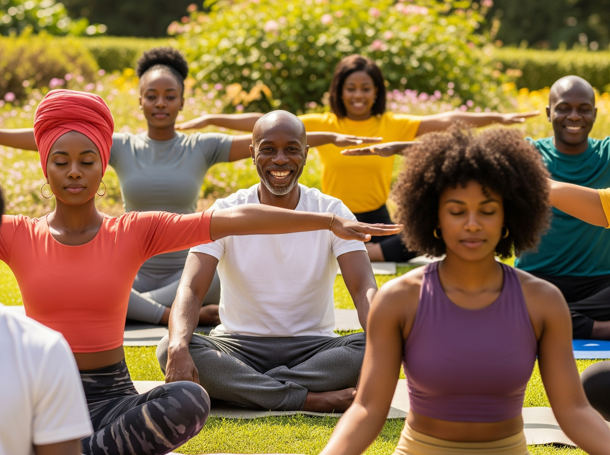

The World Health Organisation has wrapped up Self-Care Month 2025, a month-long global campaign urging individuals to take charge of their health and well-being around the clock.
Running from 24 June to 24 July, the campaign is symbolically anchored on the idea that self-care is a continuous commitment.
“24 June marks the start of Self-Care Month, which ends with Self-Care Day on 24 July. This symbolic day was chosen because self-care can be practised ‘24 hours a day/7 days a week," WHO noted in a statement.
Now in its sixth year, the annual campaign continues to grow in ambition and reach.
While past years have focused largely on physical health, this year’s effort expanded to address mental wellness, reproductive health, and digital health innovation.
A major highlight of the 2025 campaign was the launch of a Digital Adaptation Kit on self-monitoring of blood pressure during pregnancy.
According to WHO, the toolkit aims to help countries support pregnant women in managing hypertensive disorders, conditions that, if left unchecked, can pose life-threatening risks to both mother and baby.
The tool is part of a wider movement to integrate self-care interventions into primary healthcare, especially in settings where access to medical professionals is limited.
To make its materials more inclusive and accessible, WHO also released Spanish versions of its Self-Care Competency Framework Volumes 1, 2, and 3, which offer guidance for health and care workers supporting individuals in adopting self-care practices.
In addition, WHO launched a Spanish version of its implementation guide: Implementation of self-care interventions for health and well-being: guidance for health systems.
WHO also used the month to re-promote existing resources, including its global guideline on self-care interventions and its free online course on counselling and prescribing contraception in pharmacies.
The course, hosted on the WHO Academy, is now available in six languages: English, Arabic, Chinese, French, Russian and Spanish and is designed to support pharmacists and healthcare workers in improving access to reproductive health services.
“This year’s campaign underscores that self-care is not just a personal responsibility, but a public health priority,” WHO said.
Self-care, as defined by the organisation, includes self-care actions such as physical activity, healthy eating, mental well-being, and avoiding harmful substances, as well as self-care interventions, tools like quality medicines, diagnostics, and digital platforms that help individuals manage their health, with or without the direct involvement of health workers.
WHO recommends that adults engage in 150 to 300 minutes of physical activity per week, while children and adolescents should aim for at least 60 minutes per day.
For older adults, the organisation urges the inclusion of strength and balance exercises to maintain physical independence.
The organisation is also pushing for greater openness around mental health.
WHO encourages activities such as getting enough sleep, spending time outdoors, connecting with friends and family, and talking about mental health challenges as they arise.
“Good mental health is vital to our overall health and well-being,” the statement read.
Throughout the month, WHO encouraged communities to organise their activities, participate in local events, or simply reflect on how their daily choices impact their health.
“Self-care empowers us to be active agents in our healthcare, putting us at the very centre," WHO said.
The campaign ended with a call for countries to strengthen policies, invest in self-care resources, and embed self-care interventions into every level of healthcare delivery.
"The message is clear — self-care is not a one-time effort. It's a 24/7 commitment, and everyone has a role to play," WHO said.











